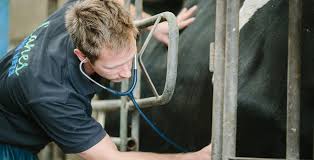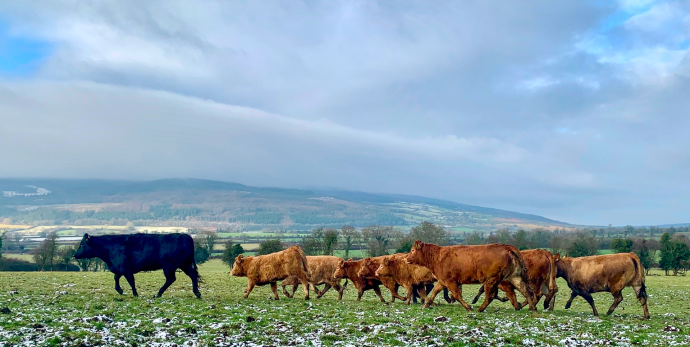Animal Health Reports
Animal Health Council Report Mary 2020

TB
Revised COVID-19 testing protocol
- The revised protocol agreed maintains all of the flexibilities secured by IFA. These include exemption of calves under 120 days from the test requirement, the facilitation of trade of calves up to 120 days without needing a TB test for internal movements, the delay of testing option for COVID-19 concerns without sanction and the continuation of the provision of the 28 day grace period after test due date where trade will be allowed.
- The Revised Protocol provides additional clarity around the area of testing calves under 120 days where the farmer wishes to have these animals tested. The testing of these will be permitted following representation by IFA on the issue.
- In addition, the guidance for people over 70 being involved in a TB test, farmer or vet, is amended to allow involvement with TB testing if they wish.
- This version of the Protocol expires on the 1st IFA will be discussing the issue with DAFM in advance of any changes.
- IFA is seeking a continuation of the current testing protocol.
Latest DAFM TB Figures
- On 29 March 2020, national herd incidence for TB stood at 3.26% for the year to date, an increase on the comparable figure for 2019 which was 2.64%.
The number of reactors identified through a combination of skin testing and gamma interferon blood testing (GIF) for Q1 2020 was 4,276, an increase of 1,413 reactors when compared to Q1 2019.
- IFA disagree with the assertion of the Department of Agriculture that the higher levels of TB are primarily attributable to animal movements and larger herd sizes.
- IFA is seeking a more effective and broader wildlife control policy to address persistent TB problem areas, including a proactive approach in addressing wildlife in advance of major infrastructural works
EU proposed 30-day premovement test for TB from herds over 6 months tested
- IFA held meetings in Brussels with the Irish permanent attaché, our MEPs and senior officials from DG Sante on this issue.
- IFA requested the Minister for Agriculture to intervene as a matter of urgency with the Commissioner for Health and Food Safety, Stella Kyriakades, who is responsible for this law.
- This requirement was passed as part the overall Animal Health Law by the Parliament in April.
- IFA is continuing to strongly object to the application of this measure to animal movements in Ireland and have again raised the issue with senior DAFM officials.
BVD
- The BVD legislation will be updated to make it compulsory to have all pre-2013 born animals acquire a test status for BVD. These animals will be required to have either a direct or indirect result for BVD and is necessary to establishing national prevalence of the disease.
- These are 3,061 animals in this category currently, 75% are male animals (bulls), 25% are female animals that are born pre-2013 that have not had a calf registered to them and as a result do not have a BVD status.
- These animals have been identified on numerous occasions in the past number of years to the herdowners in whose herds they are in.
- IFA has sought assurance from AHI and have received clarification, that the herds these animals are present in will not be restricted on enforcement of the new legislation.
- BVD testing to-date based on the AHI monitoring of test turnaround times is largely unaffected by some labs involved in COVID-19 testing, this is primarily due to the fact the peak of BVD testing was passed before labs commenced COVID testing which meant spare capacity existed.
- Issues have arisen with postage delays and appear at this point to be resolved. IFA has requested AHI to engage with An Post and to monitor the issue closely.
- The substantive issue to be addressed in the BVD programme is the testing approach for 2021 and thereafter.
- This will require detailed discussions with AHI as the EU Animal Health Law requires 18 months of no confirmed PI animals in the country in order to recognise freedom.
- This brings into focus the objectives of the programme and the costs associated with achieving these objectives.
- IFA has sought a detailed analysis of all costs and benefits, both short and long-term, of the options available to progress the programme to allow for an informed discussion and decision on the future direction.
- Latest weekly figures compared to 2019:
Veterinary Medicines
- The HPRA consultation has concluded on the categorisation of antiparasitic products. The outcome is that Antiparasitic products will become POM’s in 2022.
- The process now moves to the Department of Agriculture to implement this as part of the SI that will give effect to the New EU veterinary Medicine Regulations in Ireland.
- IFA continue to pursue the facilitation of Suitably Qualified Persons prescribing these products in order to ensure Licensed Merchants can continue to supply these products without the need for Veterinary prescription.
- Other areas in the New Veterinary Medicine Regulation relate to the validity period of the prescription for antimicrobial products. The new Regulation requires prescriptions for antibiotics to be dispensed inside 5 days of the issuing of the prescription. This raises a number of issues, including the Schedule 8, which is operated by Co-ops to prescribe intramammaries.
AMR (Antimicrobial Resistance)
- The Department of Agriculture has proposed a revision to the Highest Priority Critically Important Antibiotics (HPCIA) guidelines. The proposed revision is largely to align the policy with the latest EMA (European Medicine Agency) position. While this is generally seen as an improvement from the current policy, IFA is concerned about practical implementation, potential costs and if the guidance document is transposed into a legislative basis in the New Veterinary Medicine Regulations. In this regard, IFA has sought an impact assessment of the proposals including an assessment of the practicalities of the advice given.
Fallen Animals
- IFA has rejected the DAFM support package for Knackeries in the Fallen Animal Collection Scheme because it does not deliver on the key areas for farmers of guaranteed collection and reduced charges. DAFM has agreed to engage in a detailed review of the scheme in the coming months with IFA and all other stakeholders as a result.
- Issues arose with the collection of sheep in the South East, initially in Wicklow and subsequently in Wexford. IFA locally and Nationally engaged with DAFM on the issue to have it resolved. DAFM has now reported that collections of sheep have resumed in these areas.
Budget 2021 – Animal Health Issues
- Increased funding for the TB Eradication Scheme to compensate farmers in full for the necessary controls to achieve TB eradication.
- A Wildlife Control Programme staffed to facilitate increased capture activity in recognised TB problem areas – to include wildlife issues prior to major infrastructural works/deforestation and a targeted Deer Management Programme.
- Direct funding support to farmers to off-set the costs associated with implementing additional biosecurity measures on their farms
- Investment in developing and providing pen side testing and analytical tools to farmers and veterinary practitioners to facilitate implementation of best practice advice for veterinary medicine usage
- Enhanced Regional Veterinary Laboratory service to farmers to support best practice advice on veterinary medicine usage
- Appropriate veterinary staff numbers must be provided in all Regional Veterinary Offices.
- Direct financial support for farmers for the testing costs associated with completion of the BVD eradication programme.
- Continuation of funding levels in the Johnes control programme.
- Funding for a Department of Agriculture administered National IBR programme.
- Dedicated budget for the Early Warning System (EWS).
Upcoming events
- COPA-COGECA AH&W working party teleconference on ‘Farm to Fork’ strategy
- Teleconference with DAFM on COVID TB testing protocol
- Discussions with DAFM and other stakeholders on EU Veterinary Medicine Regulation
- Discussions with DAFM on 2021 TB programme
- Discussions with AHI on the future direction of the BVD programme
| Chairman | Pat Farrell |
| Executive | Tomas Bourke |





